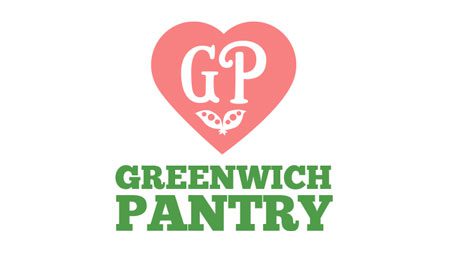Greenwich Pantry and Sustainability within Businesses
A guest blog from GBC member Greenwich Pantry.
Greenwich Pantry is a small business in the food industry. Our cooking school is the centrepiece of our business. With a focus on balanced eating, we help people cook, eat and live well. In 2016 we embarked on the journey of building a sustainable business and use our past to reflect and grow with partners like the Good Business Charter.
The food industry in the UK is the largest of the manufacturing industries, a huge ‘beast’ commanding respect and employing over 3 million people.
According to Food and Drink Federation the industry turns over more than £100 billion a year.
Although there is a wide spectrum in terms of size, the majority are micro or small business with less than 100 employees.
These days, businesses in the food industry, regardless of size are acutely aware of how important it is to be sustainable. This awareness has taken a long time to grow but it is highly welcomed. As awareness grows more and more businesses are aspiring to be, sustainable businesses.
What does it mean to be sustainable in the food sector?
Sustainability in the food sector requires businesses to think about the future generation on many levels. Particularly, the actions that we take now should not negatively impact future future generations.
Having said that, sustainability is a broad term with a wide focus, it is not a one size fits all concept.
For instance, to be effective, businesses first need to be aware of stakeholders’ needs as it relates to the environment and challenges present in their segments.
Secondly, to achieve sustainability, businesses should seek to embrace and embed good business practices.
Good business practices are important building blocks and foundational to the success of sustainability programs in these modern times.
Let’s be clear though, the idea of sustainability has been around for many decades albeit thought to be for large organisations seeking to justify and show shareholders they are contributing to the charitable work.
Think back to the John Ruggie frameworks and the goals agreed at the UN convention. Since the framework were non binding, many member states took them seriously but only as far as they could without legislation. In the UK large business took little notice until after the financial crisis.
Sadly, only businesses with a responsible business attitude or an ethical outlook committed to making significant changes.
Since Ruggie and the financial crash, mainstream sustainability campaigns have done more than focus on environmental issues.
Widening the definition for sustainability
Consumer interest groups have highlighted issues regarding social injustices, unfair taxes and as they strive to tackle such matters at the seat of government, their voices are being heard.
All of this is compelling many organisations to seek to implement practices that demonstrates commitment to stakeholders or face loss of confidence.
With increase in business transparency, ‘greening’ campaigns are no longer a viable option for businesses who want to be taken seriously.
Greenwich Pantry believes in economic empowerment. We embarked on a sustainability program and from inception, by focusing on staff wages and ensuring we pay a living wage to staff we have found a happy balance in our sustainability goals. More recently our accreditation through the Good Business Charter led to the next phase of the programme and in 2020 we signed up to the prompt payment code. We continue working our way through each of the principles set out in the charter. One of the best things about the charter is that it is open for small businesses like ours to join. With checks and balances in place, we know that there’s no room for complacency.
Being signatories of the charter, we know that our goal to be a sustainable business will be on track as we grow and scale our business. We believe that sustainability is not only the domain of large businesses, small businesses are a significant part of the landscape and have an important part to play.

